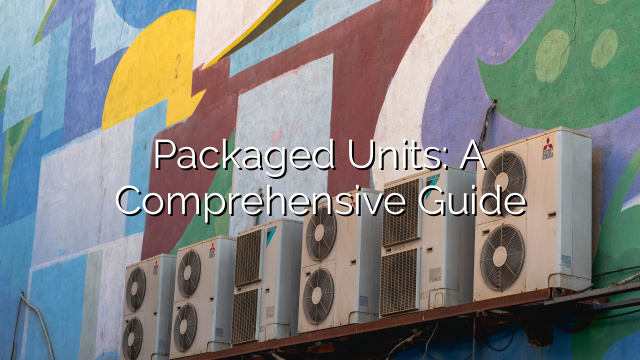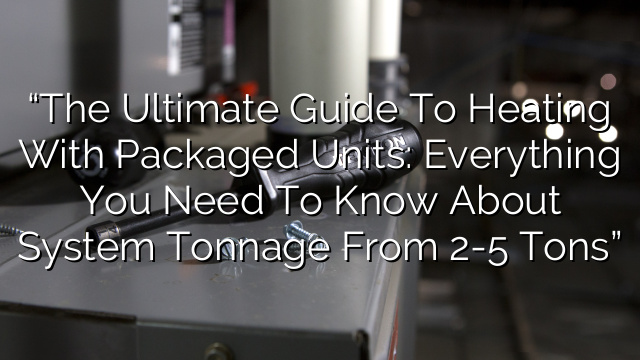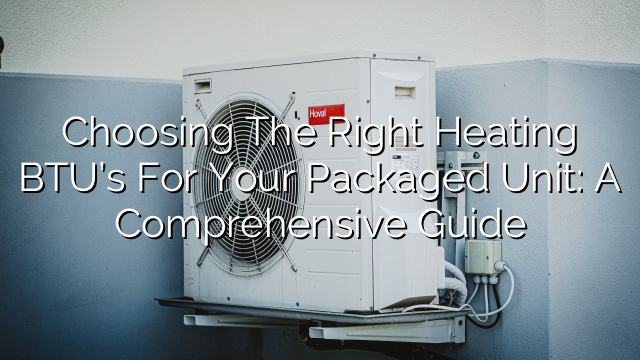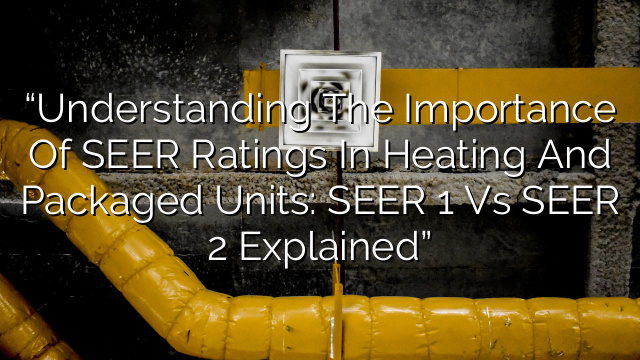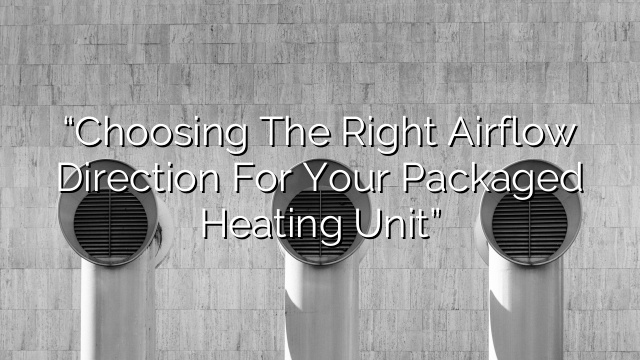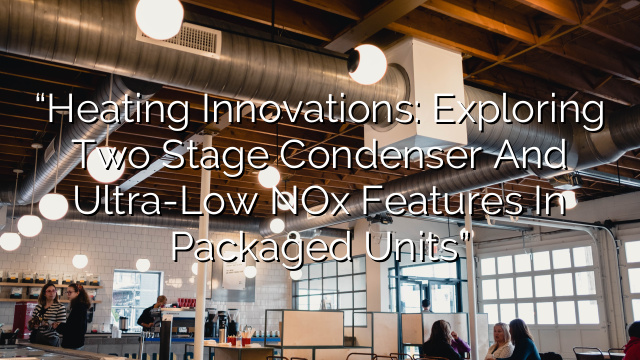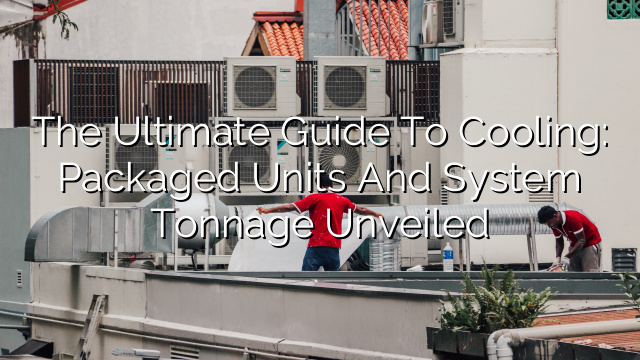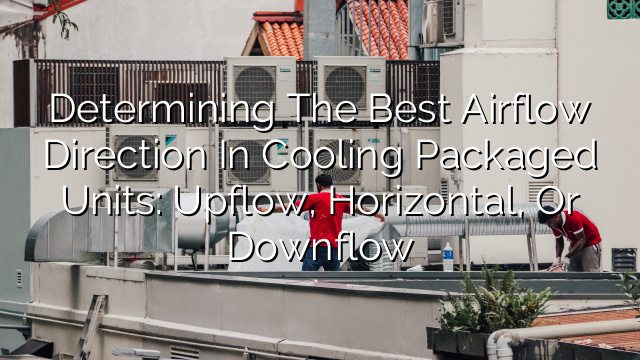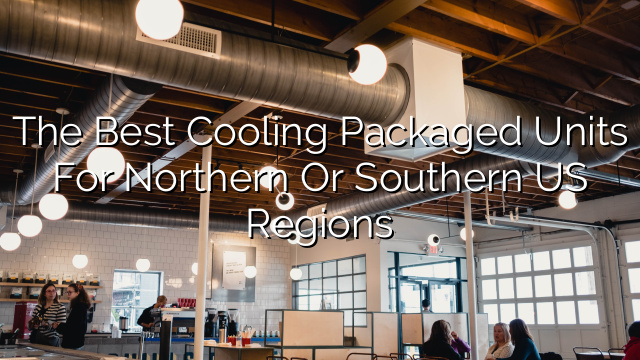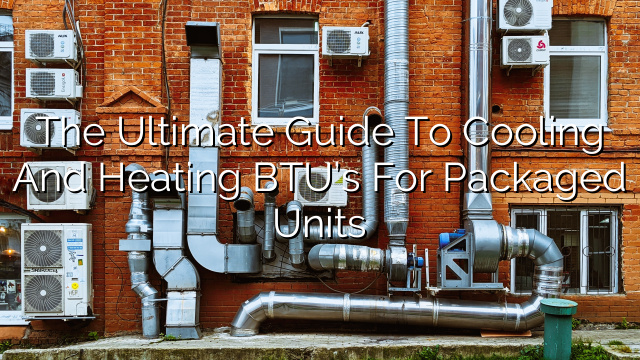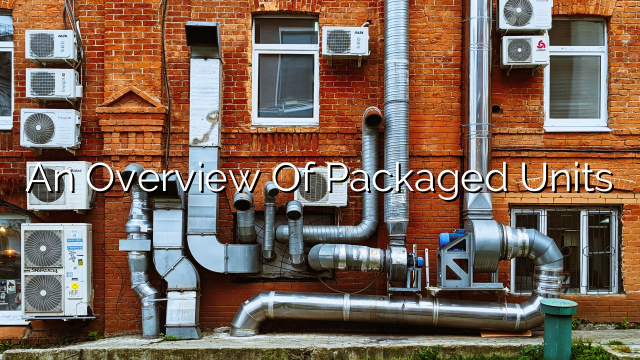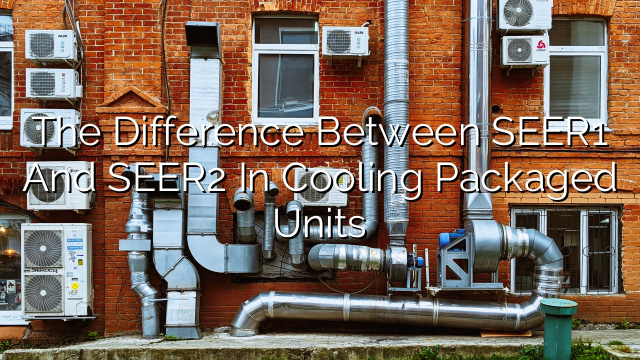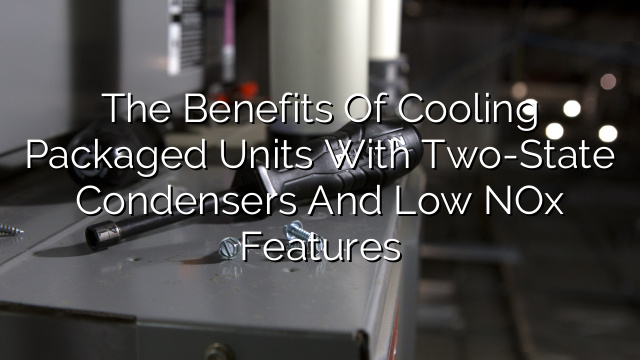Packaged Units: A Comprehensive Guide
Welcome to our comprehensive guide on packaged units! In the world of HVAC systems, packaged units are a popular choice among homeowners and businesses alike. These units not only provide efficient heating and cooling, but they also offer convenience and versatility. Whether you’re building a new home or looking to upgrade your existing HVAC system, packaged units are definitely worth considering. In this guide, we will cover everything you need to know about packaged units, including how they work, their benefits, and the different types available. So, let’s dive in!
How do Packaged Units Work?
Before we delve into the specifics of packaged units, it’s important to understand how they work. Put simply, a packaged unit combines all the components of a heating and cooling system into a single, compact unit. This includes the air handler, heat pump or furnace, evaporator coil, and condenser. The unit is typically installed outside the home or building and is connected to the ductwork through a single point of entry.
The packaged unit functions by pulling in indoor air and passing it over the evaporator coil, which removes heat and moisture from the air. The cooled and dehumidified air is then circulated back into the home or building through the ductwork. If heating is required, the unit’s heat pump or furnace will warm the air before distribution. The condenser, located in the packaged unit, releases any heat absorbed during the cooling process to the outdoor environment.
The Benefits of Packaged Units
Packaged units offer several advantages over traditional split systems. Here are some of the key benefits:
- Space-saving: The compact design of packaged units makes them ideal for homes or buildings with limited space. They eliminate the need for separate indoor and outdoor units, freeing up valuable real estate.
- Energy-efficient: Packaged units are designed to provide efficient heating and cooling, often employing advanced technologies such as variable-speed motors and two-stage compressors. This can help reduce energy consumption and lower utility bills.
- Easy installation: As all the components are contained in a single unit, installation of packaged units is generally quicker and easier compared to traditional systems. This can save both time and money during the installation process.
- Convenience: With a packaged unit, all the heating and cooling equipment is located in one place, making maintenance and repairs more convenient. This also makes it easier for HVAC technicians to access and service the unit.
Types of Packaged Units
There are several types of packaged units available, each designed to meet specific heating and cooling needs. Here are the most common types:
- Gas/Electric Packaged Units: As the name suggests, these units combine a gas furnace and electric air conditioning system. They are well-suited for areas with colder climates, as the gas furnace provides efficient heating.
- Heat Pump Packaged Units: Heat pump packaged units utilize a heat pump for both heating and cooling. This makes them a versatile option that can provide efficient year-round comfort.
- Air Conditioner Packaged Units: These units only provide cooling and do not include a heating component. They are commonly used in areas with warm climates where heating is not a primary concern.
Frequently Asked Questions (FAQ)
Q: How long do packaged units typically last?
A: On average, packaged units have a lifespan of 15 to 20 years with proper maintenance. Regular maintenance, such as changing filters and scheduling annual inspections, can help prolong the life of the unit.
Q: Can a packaged unit be installed indoors?
A: Packaged units are typically installed outdoors because they require proper ventilation and space for air circulation. However, some models offer the option for indoor installation if adequate space and ventilation are available.
Q: Are packaged units more expensive than traditional split systems?
A: The cost of a packaged unit can vary depending on factors such as the size, brand, and features. While the upfront cost of a packaged unit may be higher than a traditional split system, the long-term energy savings and convenience may offset the initial investment.
Q: Can a packaged unit be converted to a different type, such as from a gas/electric unit to a heat pump?
A: It is possible to convert a packaged unit to a different type, but it depends on the specific model and compatibility. It’s best to consult with a professional HVAC technician to determine if a conversion is feasible for your unit.
Conclusion
Packaged units are an excellent choice for efficient and convenient heating and cooling. Their compact design, energy efficiency, and versatility make them a popular option among homeowners and businesses. By understanding how packaged units work, their benefits, and the different types available, you’ll be well-equipped to make an informed decision for your HVAC needs. If you’re considering a packaged unit, don’t forget to consult with a professional HVAC technician to ensure you choose the right unit for your specific requirements. Stay comfortable!

